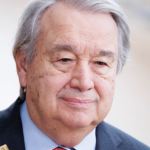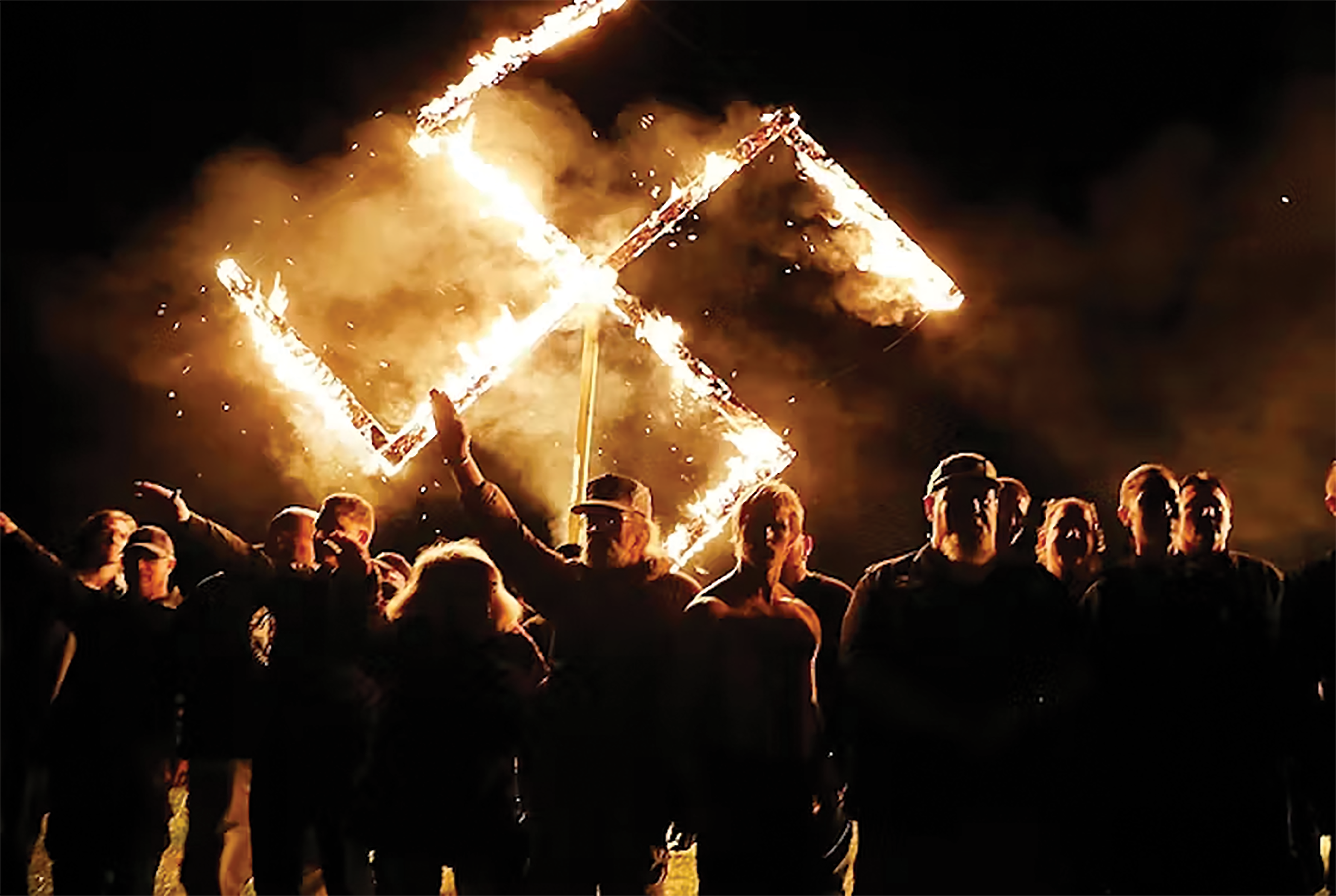UNIVERSAL: Following are UN Secretary-General Gueterres’ remarks to the Security Council on “The Values of Human Fraternity in Promoting and Sustaining Peace”, in New York yesterday…

By António Guterres
I thank the Government of the United Arab Emirates for convening this important debate on the values of human fraternity in promoting and sustaining peace.
It is an immense privilege to be joined today by His Eminence Ahmed Al-Tayeb, the Grand Imam of Al-Azhar Al-Sharif, and His Excellency Archbishop Paul Richard Gallagher, Secretary for Relations with States of the Holy See. I also extend a warm welcome to Latifa Ibn Ziaten, briefing on behalf of civil society.
Faith leaders are vital allies in our shared quest for global peace. My esteemed predecessor Dag Hammarskjöld once observed that, and I quote: “The United Nations stands outside — necessarily outside — all confessions, but it is, nevertheless, an instrument of faith. As such it is inspired by what unites and not by what divides the great religions of the world.”
Every great faith summons the imperatives of human fraternity, mutual respect and understanding. These universal values animate the United Nations Charter and are at the core of our work for peace, justice and human rights.
Preserving peace and preventing war is the raison d’être of this Council. Threats to peace come in many forms — from competition for power and resources, to human rights violations and weak governance, to extreme poverty, inequalities and marginalization that breed hopelessness and despair.
But an all-too-common denominator to the onset and escalation of conflict is hatred of the other. Hate fuels humanity’s worst impulses. It is a catalyst for polarisation and radicalisation and a conduit for atrocity crimes. It is also a result of these crimes, contributing to horrific cycles of violence that can churn for decades.
It greases the wheels of violence, frays the social fabric, and corrodes the pillars of stability. It is, in short, often the bloody heart of conflict. And that heart is pumping venom and division throughout the bloodstream of the global body politic.
Around the world, we are witnessing a groundswell of xenophobia, racism and intolerance, violent misogyny, anti-Muslim hatred, virulent anti-Semitism, and attacks on minority Christian communities. Neo-Nazi white supremacist movements today represent the top internal security threat in several countries — and the fastest growing.
Demonisation of the other; disdain for diversity; disregard for human rights — these evils are not new to our time. What is new is their speed and their reach. Social media has equipped hatemongers with a global bullhorn for bile. Today, no conspiracy is too outrageous to find a vast audience; no falsehood too absurd to feed an online frenzy.
Unverified assertions or outright lies can gain instant credibility, placed on an equal footing with facts and science. They are often embraced — and even promoted — by political leaders. Hate-fuelled ideas and language are moving from the margins to the mainstream, coarsening the public discourse and triggering real-life violence. The effects are everywhere — and they are deadly. The perpetrators of the heinous attacks on a mosque in Christchurch, a synagogue in Pittsburgh, and a church in Charleston all were radicalised online.
The United Nations itself is not immune to this threat. Last year, a survey of United Nations peacekeepers found that 75 per cent see mis- and disinformation as a direct threat to their safety and security. From our resident coordinators to our envoys, mediators, and peacekeepers — all have raised the alarm. And, of course, many challenges on the agenda of this Council are directly affected by hate speech supercharged by modern technologies. From Bosnia and Herzegovina to Libya and beyond, hate speech is exacerbating tensions between communities and eroding trust in institutions.
In the Democratic Republic of the Congo and the Central African Republic, hate speech has been used to vilify minorities. And disinformation campaigns have smeared and threatened United Nations peacekeepers and humanitarian workers with lies.
In Myanmar, social media has been exploited to demean and demonise the Rohingya minority, inciting attacks and violence. In Iraq, the recent proliferation of hate speech targeting Yazidis in Sinjar has stoked fears among the community that it will once again be the target of atrocity crimes. The list goes on, and it is growing.
Hate is a danger to everyone and so fighting it must be a job for everyone. We must collectively strengthen our defences. First, we must reign in the hate that is spreading online. Earlier this week, I launched a policy brief to promote information integrity on digital platforms.
It proposes a code of conduct to help Member States, digital platforms and other stakeholders make the digital space more inclusive and safer for all — while defending the right to freedom of opinion and expression, and the right to access information. And as part of Our Common Agenda, we are working on a Global Digital Compact for an open, free, inclusive, and secure digital future for all, firmly anchored in human rights and non-discrimination.
Second, as we move toward evermore multi-ethnic and multi-religious societies, we need to invest in social cohesion. We need to ensure that every community feels respected in their unique identity while feeling valued as an integral part of society as a whole. We need to recognize diversity as a richness of all societies — not a threat.
Hatred takes root in the soil of ignorance and fear. But when we enrich the soil of knowledge with facts, science and historical accuracy, hatred cannot spread like a deadly weed. That means ensuring quality education for everyone, everywhere, including women and girls. It means supporting education systems that instil respect for science and celebrate humanity in all its diversity. And it means a surge in education financing, peacebuilding and global solidarity.
Finally, and fundamentally, we must strengthen the values of compassion, respect and human fraternity and secure free and safe civic spaces. They are our best antidote to the poison of discord and division. This demands action by all of us across international organizations, Governments, civil society, and the private sector. And it requires intervention by faith leaders everywhere.
The fact is, we see examples of intolerance in all societies and among all faiths today. It is the duty of religious leaders to prevent instrumentalization of hatred amidst their followers. The declaration “Human Fraternity for World Peace and Living Together” — co-authored by His Holiness Pope Francis and His Eminence the Grand Imam of Al-Azhar Ahmed Al-Tayeb — is a model for compassion and human solidarity.
It urges religious and political leaders to bring an end to wars, conflicts, and environmental degradation. It calls on people of faith to recognize and respect one another, join hands and work together for the good of humanity.
At this time of strife, let us all take inspiration from this Declaration and renew our commitment to stand together as one human family.
Together, let us forge an alliance of peace, rooted in the values of human fraternity. Rich in diversity, equal in dignity and rights, united in solidarity. Thank you.
Comment
WOMEN AND CHILDREN NEED TO BE PROTECTED AGAINST CRIMINALS
Women and children are vulnerable members of our society who need to be constantly safeguarded against criminal elements in our midst who are hellbent on terrorizing communities throughout South Africa. It is therefore the duty of the police to ensure their safety and to track down and trace criminals who are committed to make their lives unbearable and for women and children to feel unsafe at public spaces and even in their own homes.
The government must be reminded that a nation that fails to protect their weaker members of society would be doomed. Women are the mothers of our nation and children are the future of our country. Failure to protect these groups is itself a crime against humanity.
The recent statistics released by Police Minister Bheki Cele on crimes committed in South Africa between January and March this year, paint a rather gloomy picture of the future of our women and children. A total 969 women and 245 children were murdered during this period. A record 10512 rape cases were registered. This translates to around 116 rape cases a day. This is appalling. The murder and rape of women and children in this country have now tragically become a norm in our society. The statistics no longer shock members of society who have now grown to accept this as a way of life.
Something drastic needs to be done – and swiftly too. Cele has announced the launch of Operation Shanela which would see more officers patrolling our streets and police officers tracking and tracing criminals. A total R65 million has also been allocated to police stations which recorded large numbers of murder and rapes. This effort is welcomed but is not enough.
The worrying factors are that it is some of these same police officers whose job it is to protect us, who were involved in the commitment of some of these serious crimes. Cele recently announced that about 47 policemen were arrested in KwaZulu – Natal following their alleged involvement in serious crimes in the area. Our judicial system should also play ball and mete out appropriate jail sentences for criminals found guilty of serious offences. It is disturbing that the police – after spending long periods in investigating and bringing the culprits to book – they are rewarded with the convicted criminal being given a suspended sentence. This will obviously discourage the police from intensifying their efforts to fight crime. It is actually a travesty of justice.
While we appreciate the sterling efforts of the men and women in blue to fight crime and the obstacles they go through to achieve this goal, were also urge them to change some of their strategies and intensify their street patrols because their visibility would help a lot in stopping criminals in their tracks to commit crime.
Women are the backbone of our homes and communities. Children are our priceless gifts from God. It is our duty to protect them at all times and ensure their safety at all times.
































